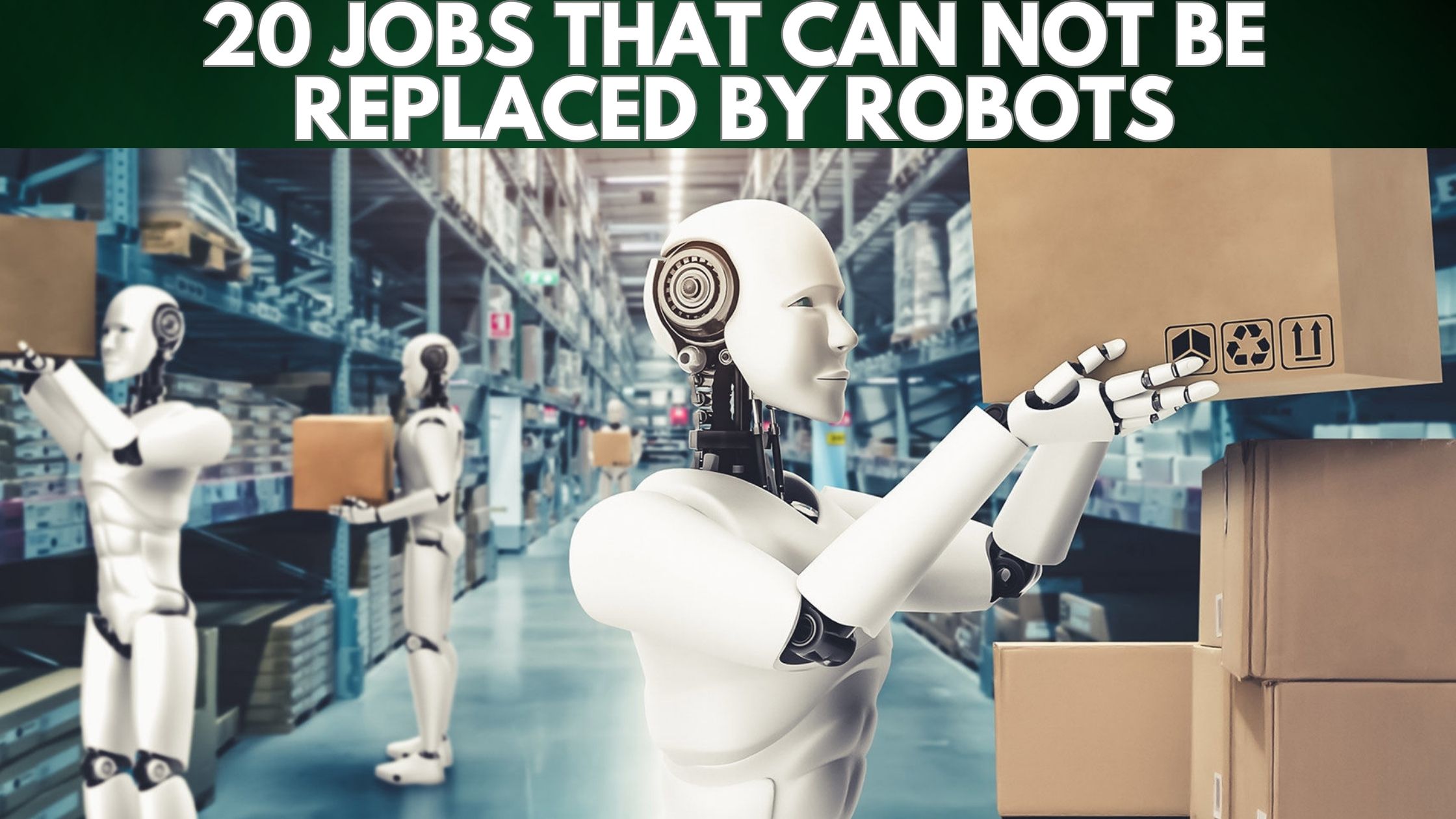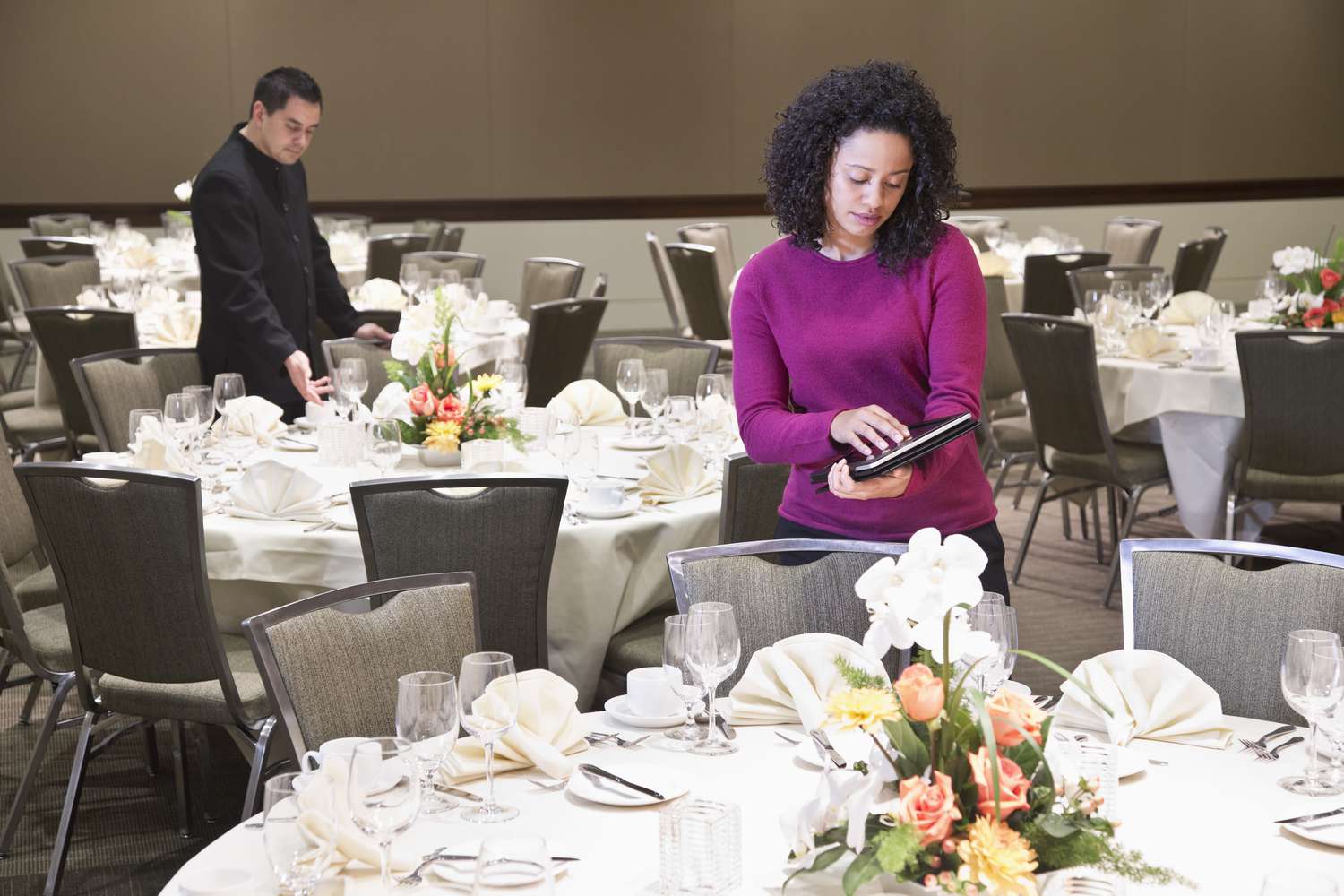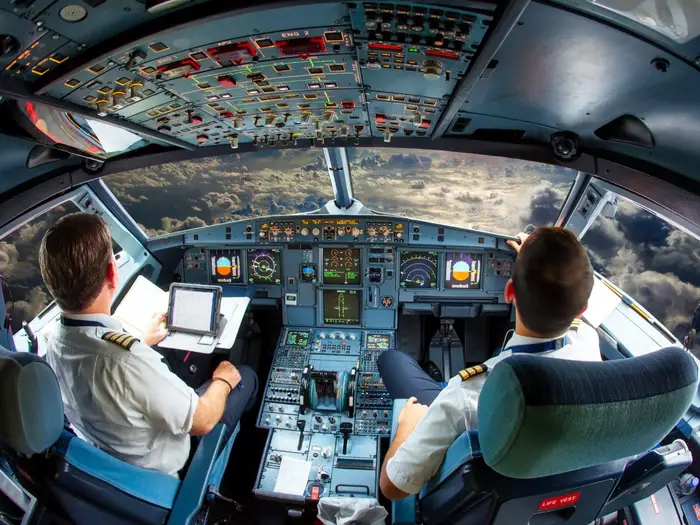Top Lists
20 Jobs That Can Not Be Replaced by Robots

Robots and automation have transformed the job market in our technologically advanced era. However, certain occupations remain indispensable to humans, as they require unique qualities, skills, and expertise that machines cannot replicate.
Some jobs demand human intelligence, common sense, reasoning, physical abilities, and emotional balance. While integrating more technology into our lives has its advantages, it also raises concerns about job security and the potential obsolescence of human roles. Although the full extent of Robort’s capabilities remains uncertain, there are job descriptions that rely on genuine human effort and intelligence, making them less susceptible to replacement by robots. Let’s explore some of these jobs.
This article highlights 20 jobs that are unlikely to be replaced by robots in the near future.
1. Priests and Clergymen

The role of a priest or clergyman is deeply rooted in human emotion, faith, and moral guidance. They provide solace, support, and spiritual counsel to individuals during moments of joy, grief, and uncertainty. Their ability to understand and empathize with human experiences is unparalleled, making them indispensable in times of need.
Robots, despite their remarkable capabilities, lack the emotional depth and spiritual understanding necessary to fulfill the role of a priest or clergyman. These professions require a level of connection and intimacy that machines simply cannot replicate. Human beings seek solace in the presence of someone who understands their emotions, shares their values, and provides comfort without judgment.
2. Medical Professionals (Surgeons, Doctors)

Health practitioners, including surgeons, doctors, psychiatrists, and psychologists, play a crucial role in society by providing medical care and mental health support. Despite advances in technology, their expertise and human touch are irreplaceable. Surgeons possess the skills and precision necessary for intricate surgical procedures that surpass current robotic capabilities. While robots can assist, the ultimate responsibility lies with the surgeon.
Doctors bring a unique combination of knowledge, experience, and compassion to diagnose and treat complex medical conditions. They consider patients’ overall health, and medical history, and provide personalized treatment plans. The empathy and human connection doctors offer during consultations is invaluable for patients.
Psychiatrists and psychologists specialize in addressing emotional and psychological issues, utilizing various therapeutic techniques to actively listen to and guide patients. The human element of understanding and empathy is crucial in these fields, as patients require personalized care beyond analysis.
3. Psychiatrists and Psychologists
Psychiatrists and psychologists specialize in addressing emotional and psychological issues, utilizing various therapeutic techniques to actively listen to and guide patients. The human element of understanding and empathy is crucial in these fields, as patients require personalized care beyond analysis.
Both psychiatrists and psychologists apply their behavior, learning, and expertise in mental health to help people succeed emotionally, behaviorally, socially, and academically.
Robots cannot help people with their mental problems. So it’s quite impossible to have a robot psychiatrist or psychologist.
4. Legal Practitioners (Judges and Lawyer)

Despite the increasing influence of technology, certain professions such as judges and lawyers remain resistant to automation. In the legal field, their expertise and human judgment are crucial and cannot be easily replaced by robots or AI.
The complexities of the law and the need for critical thinking make legal practitioners essential. Judges possess the ability to interpret the law and make fair decisions based on context and empathy, qualities that are difficult for machines to replicate.
Lawyers are also vital as they advocate for their clients and navigate the intricate legal system. Their skills in analyzing complex legal problems, providing personalized advice, and representing individuals in court are indispensable.
Furthermore, legal practitioners rely on their communication skills to negotiate settlements and argue cases effectively. Their interpersonal abilities, combined with their deep knowledge of the law, allow them to navigate the legal landscape successfully.
5. Politician
In today’s rapidly advancing technology-driven world, concerns about job security have arisen due to automation and artificial intelligence. Many worry that robots will make human workers irrelevant. However, certain professions, such as politicians, cannot be replaced by robots.
Politicians have a vital role in representing people’s interests and making important decisions for a nation. While robots excel at tasks requiring efficiency and data processing, they lack the complexity and nuance required in politics.
Politics involves negotiation, compromise, and relationship-building, which necessitate emotional intelligence, empathy, and understanding of diverse populations. Unlike robots, politicians can connect with people personally, address their concerns, and advocate for their rights.
6. Professional Singer

The fear of robots replacing human workers is a major concern in today’s fast-paced technological world. Although automation has transformed many industries, certain professions, like professional singing, are not at risk of being taken over by robots.
Singing is a skill that involves more than just technical ability. It requires a deep connection to the music and the ability to convey emotions effectively. These qualities make it extremely difficult for robots to replicate the human singing experience.
Singing is different from tasks that can be precisely programmed because it involves numerous intangible elements that are challenging to quantify. The nuances in pitch, tone, phrasing, and interpretation are unique to each singer, making it hard for machines to convincingly replicate such subtle performances. While technology has allowed for synthesized voices and autotune, they still lack the soul and authenticity that a human voice provides.
7. Magicians

In today’s fast-paced world of technology, there is growing worry about automation and its potential to replace human workers. While robots and AI are indeed taking over many jobs, there are certain professions that remain unaffected by the digital revolution. Surprisingly, magicians belong to this group.
Magicians have always fascinated people with their mind-bending tricks and illusions.
One of the key reasons why magicians are irreplaceable is the element of surprise they bring to their performances. They excel at creating an atmosphere of wonder and astonishment, leaving audiences in awe of their abilities. In contrast, robots lack the creativity and spontaneity necessary to engage and entertain an audience in the same captivating manner.
8. Teachers

In today’s world, the fear of robots and automation taking over jobs is a concern. Teaching is one such occupation, as it relies on qualities that machines cannot replicate. Teachers play a vital role in shaping individuals’ minds and futures. They possess empathy, emotional intelligence, and the ability to connect with students on a personal level. These characteristics create a positive learning environment and allow for individualized attention, which robots cannot provide.
They offer guidance, mentorship, and support, helping students overcome challenges and discover their talents and interests. The personal interaction and human touch offered by teachers are crucial in instilling motivation, confidence, and a lifelong love for learning.
9. Occupational Therapists and Counselors

Occupational therapists play a vital role in helping people regain independence and enhance their quality of life after facing physical or mental health challenges. They evaluate patients’ needs, create personalized treatment plans, and implement tailored therapeutic interventions.
The intricate combination of technical expertise and human connection required in occupational therapy makes it resistant to automation. These professionals possess specialized knowledge of the human body, understand the impact of different conditions on daily functioning, and are skilled in various therapeutic techniques. Additionally, their ability to establish trust and develop relationships with patients is crucial for facilitating the recovery process.
10. Athletes

Athletes, especially sportsmen, are highly valued and irreplaceable in their roles. Sportsmen possess exceptional qualities such as physical prowess, strategic thinking, and emotional resilience that are deeply rooted in the human experience. Their unique combination of skills requires both physical strength and mental sharpness, quick decision-making, and teamwork. These elements set athletes apart from automation and robots.
Although machines have advanced in many fields, they cannot replicate the passion and dedication that athletes bring to their sports. Athletes symbolize the relentless pursuit of excellence, putting in countless hours of training to push their limits. Their unwavering determination, self-discipline, and spirit are qualities that machines cannot imitate.
The human touch in sports, characterized by raw emotions, unexpected comebacks, and breathtaking moments, creates an unparalleled atmosphere that captivates audiences worldwide.
11. Event Planners

Event planners are essential for organizing different types of events, such as conferences, weddings, and social gatherings. They have various responsibilities, including communicating with clients, selecting venues, managing logistics, coordinating vendors, and ensuring the smooth execution of every event detail. These tasks require creativity, adaptability, and interpersonal skills that robots struggle to replicate.
The main reason why event planning remains a human-driven profession is the need for personalized and customized experiences. Clients often have specific preferences, themes, or goals for their events, and it takes a human touch to understand and fulfill these requirements effectively.
12. Marketing
Marketing is crucial for businesses to connect with their target audiences, promote their products or services, and achieve growth. While advanced algorithms and automated tools exist, the strategic and creative elements of marketing still heavily depend on human intelligence and intuition.
They have a profound understanding of consumer behavior, market trends, and competition analysis. This expertise enables them to design compelling campaigns that engage customers and establish a powerful brand image.
13. Pilots

Robots and automation have made great progress in different areas, but pilots still have a crucial role in aviation for a few important reasons. Flying an aircraft is a complex task that demands human intuition, decision-making skills, and adaptability, qualities that robots have not fully attained yet. Pilots bring their experience and expertise to handle unforeseen situations and make quick judgments when necessary.
Moreover, pilots hold the responsibility for ensuring the safety and welfare of their passengers. They receive training to evaluate risks, monitor instruments, and respond effectively to emergencies. Having pilots in the cockpit offers reassurance and a human connection that technology cannot reproduce.
14. Journalists

Journalists can be relieved as a recent study reveals that their profession is considered safe from automation. The study, conducted by experts, analyzed factors such as creativity, critical thinking, and human interaction required in different jobs. Based on these criteria, journalism emerged as one of the occupations unlikely to be replaced by robots. This is due to the significance of human intuition and investigative skills in the field.
Journalists are responsible for investigating, analyzing, and reporting on events and issues, which require a deep understanding of human behavior and effective communication.
15. Artists and Authors
Artists and authors are among the 20 jobs that cannot be replaced by robots. They use their creativity and skills to express emotions and ideas through various mediums, creating a unique human touch that machines cannot replicate. Authors play a crucial role in preserving culture and sharing knowledge through written words, transporting readers to different worlds and inspiring imaginations. Although technology has brought e-books and digital platforms, the art of storytelling and writing remains distinctly human, with the ability to craft compelling narratives and explore complex themes.
16. Writing

Despite the rise of robots, certain jobs still require human involvement, and one such occupation is writing. Writing is a diverse profession that encompasses various genres and demands critical thinking, imagination, and the skill to effectively communicate complex ideas. These qualities cannot be replicated by robots, making writers indispensable.
Writing sets itself apart from automation by establishing an emotional connection with readers. Whether it’s a heartwarming story or a thought-provoking article, words have the power to evoke emotions and deeply impact individuals. Writers possess the innate ability to delve into the depths of human experience and translate it into words that profoundly resonate with readers.
17. Computer System Analysts

Robots have revolutionized industries by taking over tasks previously done by humans, but certain jobs still rely on human professionals. Computer System Analysts are one such occupation that remains immune to automation.
Computer System Analysts are vital in developing and maintaining computer systems within organizations. They evaluate systems, identify areas for improvement, and design solutions to enhance efficiency and productivity.
The complexity of their work, along with the need for human intuition and creativity, makes Computer System Analysts irreplaceable. They perform tasks like analyzing business requirements, designing systems, troubleshooting, adapting to changes, critical thinking, integrating systems, ensuring data security, collaborating with others, managing projects, testing systems, optimizing costs, continuously improving processes, engaging stakeholders, providing training and support, assessing risks, and considering ethical implications.
18. Chefs

Chefs possess a unique combination of creativity, intuition, and human touch that cannot be replicated by technology.
The culinary arts are not merely about following instructions; they are seen as skillful crafts. Chefs bring their own style, inventive ideas, and personal flair to create exceptional flavors and dining experiences that captivate our senses. This artistic expression distinguishes chefs and makes their work highly valuable.
The process of crafting delicious dishes goes beyond measurements and calculations. It requires a deep understanding of ingredients, textures, and flavors that only a human can possess. Chefs rely on their expert judgment and experience to make on-the-spot adjustments, such as fine-tuning seasonings or cooking times, in order to achieve perfection. This adaptability and intuition are crucial aspects of their success.
19. Customer Sales Representatives

Customer sales representatives are among the 20 job positions that are deemed irreplaceable by robots. These professionals play a vital role in the sales industry and their unique skills and abilities make them indispensable. Unlike robots, customer sales representatives possess the human touch, enabling them to build rapport, understand customer needs, and provide personalized solutions. Their ability to establish trust and engage in meaningful interactions sets them apart from automation, making their expertise highly valued and essential in the business world. Thus, customer sales representatives continue to thrive in their role, unaffected by the threat of automation.
20. Stylists

Stylists are essential in the fashion, beauty, and entertainment industries, bringing artistic expertise and an understanding of individual preferences and trends. They create captivating looks in fashion, considering details like the color coordination and fabric choices. In beauty, stylists provide personalized services and transformations based on client desires, relying on human connection and communication skills that robots cannot imitate.
CONCLUSION:
While automation and robots undoubtedly have their place in the workforce, these 20 jobs demonstrate the unique qualities and abilities that only humans possess. As technology continues to advance, it is crucial to recognize and value the contributions that these occupations make to society.
READ MORE ARTICLES:
- Top 10 Highest-Paying Jobs in Nigeria in 2023
- Top 10 Highest-Paying Jobs in The World(2023)
- Top 10 Lowest Paying Jobs in Canada
- Top 20 Landmarks In Nigeria
- Top 10 Hardest Jobs In The World
